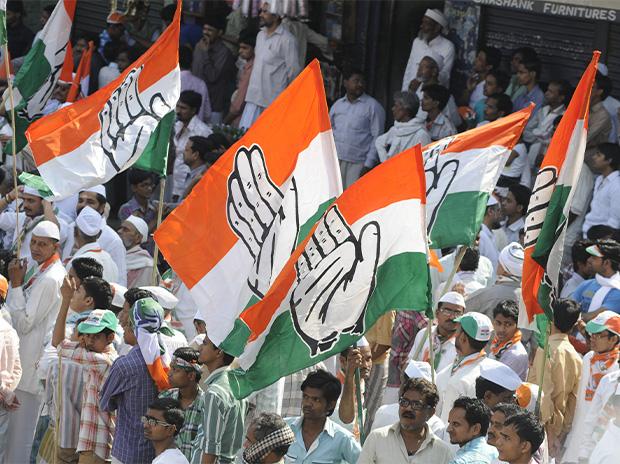Thousands of Indians apply for permanent residency in the United States of America (USA) every year. The Green Card (officially known as the Permanent Resident Card), given to permanent residents, is the final stamp stating that the person is now a permanent resident of the US. However, there is often a long waiting period to acquire permanent residency.
According to data released by the US Citizenship and Immigration Services (USCIS) in July, nearly 370,000 Indians were awaiting visa availability, most of whom were in the professionals and skilled workers category. These workers are eligible to acquire Green Cards.
One of the primary reasons for the delay is the 7 per cent per country cap on the employment-based immigration visa in the US. It limits skilled citizens from large population countries like China and India from getting permanent residency in the US. Immigrants from these countries, who are as qualified as any other high-skilled worker entering the US, are forced to wait 20 to 30 times longer for lawful permanent residency status compared to countries with a smaller population.
To overcome these country-specific quotas, the new Equal Access to Green cards for Legal Employment Act (EAGLE Act of 2022) was introduced in the US House of Representatives earlier this year to propose removing the country caps. It also aims to raise the cap on a family-sponsored visa from 7 per cent to 15 per cent. On December 14, 2022, the proceedings on the bill were postponed in the US House of Representatives.
What will change?
The primary aim of the EAGLE Act is to shift the basis of giving the Green Card from the place of birth to skills.
It aims to create “a system where all equally qualified high-skilled workers, no matter their country of birth, will receive employment-based Green Cards in the order in which they apply and based solely on the skills they bring to America,” its official website read.
It will benefit people from India seeking a PR in the US as they will have to wait for shorter durations. Major companies, including Amazon and Intel, have expressed their support for the bill. Almost all the major companies in the US have Indian employees.
Moreover, the Cato Institute said that the bill would raise the average wage of an employment-based immigrant by 12 per cent (or by $11,592), from $95,534 to $107,126 per annum.
Faster processing of the citizenship application will also help immigrant workers to get protection from exploitation as they would not be completely dependent upon one employer for their legal stay for an extended period.
Resistance from Americans
Several Americans have expressed their scepticism about the Act. They said this would encourage more foreigners to come to the US for residency. They said that low-wage and low-skilled workers would get Green Cards.
What does it have for Americans?
The Act has several clauses that address the fears of the Americans.
Under the Act, employers who hire foreign workers will have to advertise the jobs to American workers on a searchable Department of Labor website for at least 30 calendar days to ensure American workers can get the first crack at these jobs.
It also offers whistleblower protections for employees to report illegal employer behaviour to the US government.
The Act will also make it illegal for jobs to be advertised as “only available to H-1B workers”. This will ensure that H-1B workers cannot be given a preference over American workers.
How long does it take Green Card holders to become US citizens?
Once issued, a Green Card is valid for ten years.
A Green Card holder can apply for US citizenship after five years of permanent residency. They need to renew their Green Card before applying for citizenship if it is set to expire in less than six months or has already expired.
Note:- (Not all news on the site expresses the point of view of the site, but we transmit this news automatically and translate it through programmatic technology on the site and not from a human editor. The content is auto-generated from a syndicated feed.))




Online poker
My coder is trying to convince me to move to .net from PHP.
I have always disliked the idea because of the costs.
But he’s tryiong none the less. I’ve been using WordPress on a
variety of websites for about a year and am nervous about switching to another platform.
I have heard excellent things about blogengine.net. Is there
a way I can import all my wordpress posts into
it? Any help would be greatly appreciated!
Online poker
Howdy! I could have sworn I’ve been to this site before but after checking through some of the post I realized it’s new to me.
Anyhow, I’m definitely delighted I found it and I’ll be bookmarking
and checking back frequently!
penis enlargement
For hottest information you have to go to see the web and on the web
I found this website as a best website for newest updates.
my blog post: Situs Togel Terpercaya
Hi to every , for the reason that I am really keen of reading this weblog’s
post to be updated regularly. It includes nice stuff.
A few hours ago, I woke up at around 3 AM, haunted by thoughts of that
intense anime Kaiji I watched before bed. It’s crazy how much it sticks with
you.
Something cool I found out is that the creator used real behavioral tactics to make the gambling in Kaiji feel brutally authentic.
That just makes me respect the anime even more.
I couldn’t go back to sleep, so I checked out a write-up that
talked about how Kaiji’s games work in real life. Trust me,
it’s worth checking out if Kaiji hooked you like it did me.
With my brain still spinning, I fired up my go-to casino
app and gave it a shot. I picked Book of Ra—it just felt right in that moment.
And get this—I scored a grand. Did not see that coming.
What I really like about Book of Ra is how those bonus rounds come out of nowhere and flip everything.
So now I’m wondering… was it pure chance?
Or was that destiny?
Anyone else ever feel something similar?.